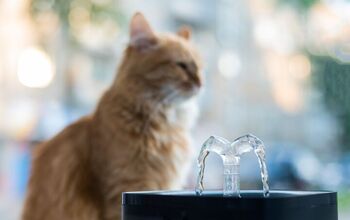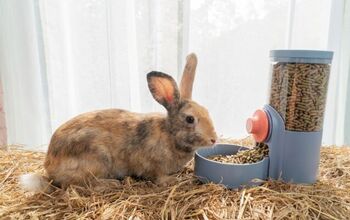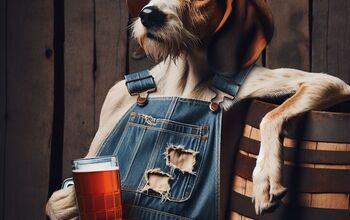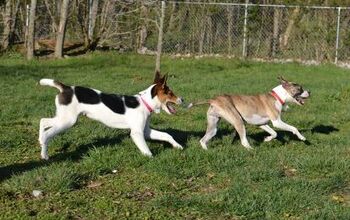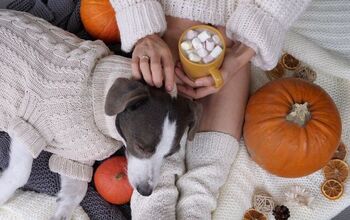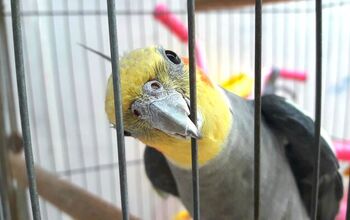Your Dog Actually Knows When You Mean Well

Mean-spirited or well-intentioned - our dogs have it figured out.
I don’t know about you, but my dogs are typically sound asleep or are walking around happy. Wagging tails, “smiling” faces and an eager disposition. It would be difficult to imagine any of them shooting me a sidelong glance and judging me, but the science and technology publication, NewScientist, suggests they really do. Well, maybe not the sidelong glance, but the judging part is gaining credence.
You see, Dr. Christoph Völter and his colleagues at the University of Veterinary Medicine in Vienna, Austria, ran a series of studies on our four-legged friends and discovered something rather amazing. That our good buddies can actually recognize and appreciate when our intent is well-meaning.
Confused? Let’s simplify the concept: if you were about to offer your dog a treat and you accidentally dropped it, he is more likely to respond with patience than if he watched you intentionally pull it away as he was about to chomp down. In either instance, he doesn’t get the treat, yet can understand when your actions are well-intentioned. And even if the gesture doesn’t pan out, he’s cool with that.
Now, the ability to show “tolerance” for a human unable/unwilling to fulfill the promised action – such as providing the treat - was previously only seen with primates. Not dogs.
So, how did Völter and his team conclude that dogs are also able to suss out the situation so accurately?
They started by running an impressive series of 96 trials for which 48 dogs of various breeds, ages, and sex were studied. The dogs were separated from humans by a clear plexiglass panel with a hole just large enough to pass a piece of sausage meat through. See where this is going?
The eager dog could see and smell the sausage, and then the human either teased by holding the meat up and then pulling it away or they pretended to accidentally drop it.
The dogs waited patiently for 30 seconds before finally receiving their juicy reward. And it was during this time, that their behaviour was observed by those involved in the study. A computer-based algorithm detected and tracked specific points on the dogs’ bodies that would help them record and analyze the canine's body language better.
What they found was that the dogs responded differently when the sausage was “accidentally” dropped than when they knew they were being teased. The dogs showed more patience, made more eye contact, and wagged their tails more ( specifically to the right) when they perceived the intent of the human to be genuine and the drop, truly unintentional. That despite the fumble, they still expected a treat to be coming their way.
For those teased, they seemed to recognize it was intentional and tended to step away from the barrier and sit down more often. Suggesting they had picked up on the lack of sincerity and were no longer buying into the phony proffer of treats.
So, that sidelong glare you imagine you're getting when you mess around with treats? It's real... and yes, you're being judged.

Sharing space with three seriously judgy Schnoodles and a feline who prefers to be left alone. #LivingMyBestLife
More by Mary Simpson




